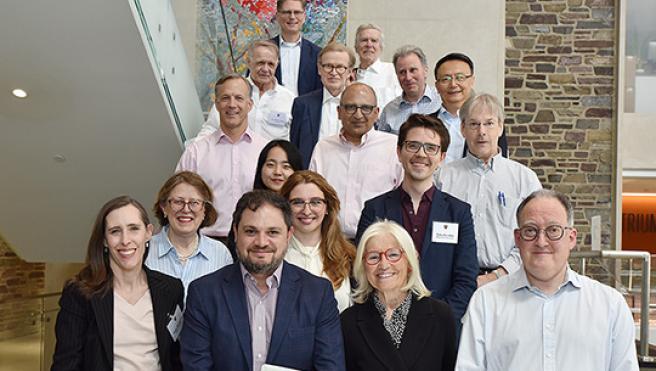Seeking a set of principles to rebuild the world order

In 1787, with the nascent United States of America in danger of going broke and falling apart, a group of delegates met in Philadelphia to revise the Articles of Confederation, the young country’s governing document. The Constitutional Convention instead resulted in an entirely new system of governance, one that markedly increased power at the federal level.
Almost 240 years later, a group of international scholars and public intellectuals, deeply concerned by the state of the world, convened at Princeton for a kind of latter-day constitutional convention, this one aimed at fostering unity on a global level. The COVID-19 pandemic, Russia’s invasion of Ukraine, and strained relations between the United States and China are among the matters that inspired the initiative.
“The idea was to bring a group of leading thinkers together and see if they could identify a set of shared principles that could provide the basis of rebuilding the rules and institutions of world order,” said G. John Ikenberry, the Albert G. Milbank Professor of Politics and International Affairs, who co-organized the gathering. “It’s a fairly ambitious effort to see what countries might agree upon despite their deep differences and use those foundational principles and norms to rebuild what is widely seen as a troubled, even crisis-ridden, international system.”
The meeting, titled Reconnecting the World and held this spring, produced the Princeton Principles, a document laying out “minimum conditions for rebuilding the international, rules-based order.”
The 10 tenets address how countries interact with each other, economic development and competition, human rights, nuclear weaponry, dispute settlement, and territorial and regime integrity.
